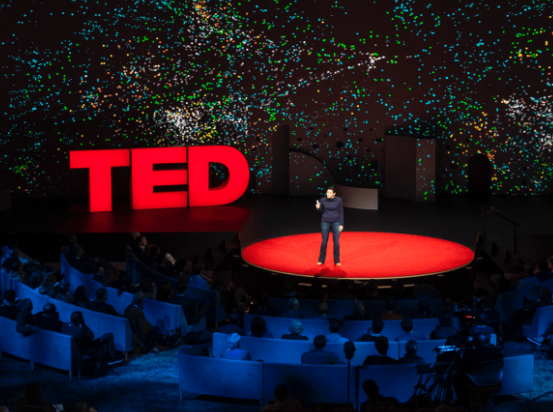Addiction has affected the lives of so many people around the world and it continues to be as prominent as ever before. Seeking help is always the answer.
But help can come in all manner of forms, and for all manner of people, whether you’ve been directly affected by addiction and are struggling yourself or are a family member looking to support a loved one, pay the cost of rehab or get the support you need during a difficult time.
While seeking professional help is the best option, there’s also plenty of advice and help online too, including some fascinating TED talks. So if you’re struggling with addiction, supporting someone, or would like to find out more about the issue, here are five TED Talks you should give a go…

“Everything You Think You Know About Addiction is Wrong” – Johann Hari
One of the more famous TED Talks around addiction, Johann Hari, a journalist, looks to challenge the conventional views on what causes addiction and the treatments that can be used for it. The talk features arguments that state that addiction isn’t necessarily just about the chemical hooks that substances provide, but actually that it’s largely rooted in social isolation and disconnection.
He draws on his own experiences throughout the talk, and claims that sobriety isn’t the opposite of addiction, but rather connection is and the importance of it. It’s an interesting look at addiction, with many great examples of how greater social connection can improve the problem addiction is creating.
“The Power of Addiction and The Addiction of Power” – Gabor Maté
Renowned expert in addiction and trauma, Dr Gabore Maté provides his unique perspective in exploring the links between early childhood trauma and addiction. It discusses at length how addiction is often brought on as a coping mechanism for emotional pain and that it is not a choice, but rather a response to suffering.
Maté highlights the importance of compassion and understanding in the road to recovery and challenges society’s view that typically demonises addicts.
“How to Make Stress Your Friend” – Kelly McGonigal
While not directly about addiction, psychologist Kelly McGonigal’s TED Talk sheds light on the role of stress in addiction. McGonigal discusses how our perception of stress can significantly impact how we cope with it. For many people, addiction is a way of dealing with overwhelming stress, and understanding how to transform stress into a positive force can be a powerful tool in recovery.
McGonigal encourages us to view stress as a natural, helpful response that can motivate us to connect with others and seek support. This shift in mindset can help those struggling with addiction develop healthier coping strategies and reduce reliance on addictive behaviours as a form of escape.
“Addiction is a Disease – We Should Treat it Like One” – Michael Botticelli
Michael Botticelli, former Director of the White House Office of National Drug Control Policy, presents a strong case for treating addiction as a medical issue rather than a moral failing. In his TED Talk, Botticelli reflects on his own recovery from addiction and how the stigma surrounding addiction often prevents people from seeking help.
He highlights the importance of viewing addiction as a chronic disease that requires medical intervention, ongoing support, and compassion, much like diabetes or heart disease. Botticelli also advocates for policy changes that prioritise treatment and recovery over punishment, particularly in the context of the criminal justice system.
“The Brain in Love” – Helen Fisher
While Helen Fisher’s talk primarily focuses on love and romantic attachment, it offers fascinating insights into how the brain’s reward system works, shedding light on the neurological similarities between love and addiction. Fisher explains how the same brain pathways that are activated in romantic love are also involved in addictive behaviours, particularly in relation to the release of dopamine, the brain’s “feel-good” chemical.
Fisher’s research provides a deeper understanding of how addiction hijacks the brain’s natural reward system, making it difficult to break free from substance abuse or compulsive behaviours. Her talk offers a scientific perspective on why people become “addicted” to certain feelings, behaviours, or substances, and why recovery can be so challenging.










